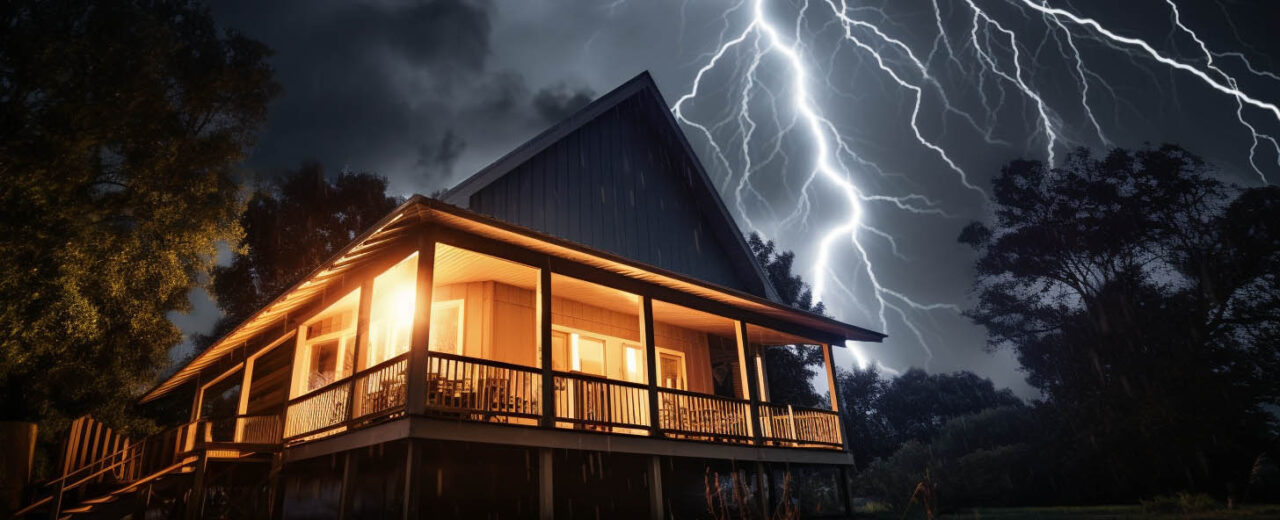Metal roofs have been a topic of discussion for many homeowners and builders alike. One of the most common misconceptions surrounding metal roofs is their supposed attraction to lightning. Let’s dive deep into this topic and debunk the myths surrounding metal roofing and lightning strikes.
Understanding Lightning and Its Behavior
Lightning is essentially the flow of electrical current between the earth and the sky. The bright flash we see during a lightning strike occurs when electrons from the earth rush up to the sky along a path of ionization. Contrary to popular belief, lightning is not particularly interested in your metal roof. Its primary goal is to connect negatively charged electrons with the earth’s positively charged electrons as quickly as possible.
The unpredictability of lightning means it’s challenging to determine its exact point of strike. However, topographical features play a significant role in influencing lightning behavior. For instance, mountain tops and tall structures are more likely to be struck by lightning due to their proximity to the sky. If your home is situated on a mountain top or near a cliff edge, it might be more susceptible to lightning strikes, regardless of the roofing material.
The Role of Building Size and Proximity
The size of your building and its proximity to taller structures can also influence the likelihood of a lightning strike. Larger and taller buildings are naturally more prone to lightning strikes compared to smaller structures in their vicinity. So, if you have a modest-sized home next to a towering building, your risk of experiencing a lightning strike is considerably reduced.
Why Metal Roofs Offer Superior Protection
Metal, by its very nature, is an excellent conductor of electricity. While it doesn’t necessarily attract lightning, it offers superior protection in the event of a strike. When lightning hits a metal roof, the electrical charge is quickly conducted away, directing it towards the ground or another nearby conductor.
Moreover, metal is a non-combustible material. Given that lightning produces intense heat, there’s a risk of fires igniting on roofs or within homes. Metal roofs, due to their non-combustible nature, can effectively shield your home from both the heat of the lightning strike and the electrical current.
The Metal Construction Association has even highlighted the benefits of metal roofing during lightning events, stating that metal roofing, being both an electrical conductor and non-combustible, is one of the most desirable construction materials available.
However, it’s essential to note that while metal roofing can offer enhanced protection during a lightning strike, it doesn’t make your property immune to damage. For those residing in areas frequently hit by electrical storms or those owning valuable electrical equipment, considering a lightning protection system is advisable. Such systems ensure a consistent connection between the earth and sky, further safeguarding your property.
Making an Informed Decision with The Roofing Center
From the information available, it’s evident that metal roofing is not more likely to attract lightning compared to other roofing materials. In fact, metal is among the top materials to consider for your roofing needs. The Roofing Center, one of the best Bozeman’s roofing contractors, has always emphasized the importance of making informed decisions. With our expertise in metal roofing in Bozeman MT, we ensure that our clients receive the best roofing service in Bozeman.
So, the next time you hear someone questioning the safety of metal roofs concerning lightning, you’re well-equipped with the facts to debunk the myth.
Exploring Further
Interested in learning more about metal roofing options? Be sure to explore the different types of metal roofing materials suitable for various needs. If you have any queries related to metal roofs, The Roofing Center is here to assist. Remember, making an informed choice is the key to ensuring the longevity and safety of your home.


